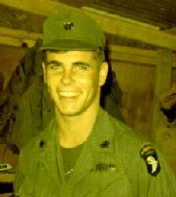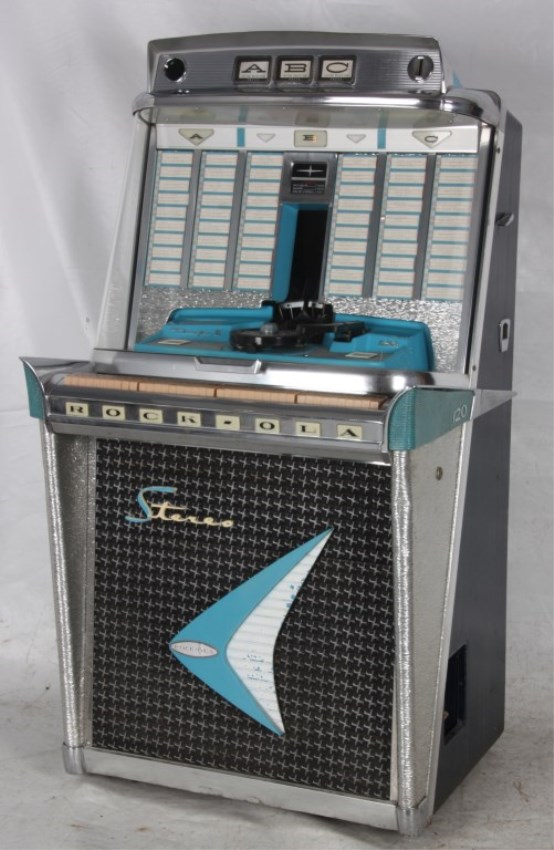
The 60s Official Site
"Where Music is Our Middle Name"
Quick Links
Your Daily Oldies Fix Top Ten Countdown Solid Gold Memories Jukebox Music
Vibration of a Nation Remember When Television of the 50s and 60s 60s Slang
Things You Just Don't Hear Anymore 60s TV Commercials Chickenman Episodes Woodstock This Weeks Number One Hits
The Early Years of Rock and Roll Vietnam War Myths
All the content menu is listed on the left menu border bar
DragnetDragnet was perhaps the most famous and influential police procedural drama in media history. The series gave millions of audience members a feel for the boredom and drudgery, as well as the danger and heroism, of real-life police work. Dragnet earned praise for improving the public opinion of police officers.
The Dragnet trademark is the show's opening narration: "Ladies and gentlemen: the story you are about to hear is true. Only the names have been changed to protect the innocent." This underwent minor revisions over time. The "only" and "ladies and gentlemen" were dropped at some point, and for the television version "hear" was changed to "see". Variations on this narration have been featured in many subsequent crime dramas, and in satires of these dramas (e.g. "Only the facts have been changed to protect the innocent"). The original Dragnet starring Jack Webb as Sgt. Friday ran on radio from June 3, 1949 to February 26, 1957 and on television from December 16, 1951 to August 23, 1959, and from January 12, 1967 to April 16, 1970. NBC's radio and television networks carried all three series. There were three Dragnet feature films, a straight adaptation starring Webb in 1954; a TV-movie produced in 1966; and a comedy spoof in 1987. After Jack Webb's death, two Dragnet revivals were attempted; one was for weekly syndication in 1989 and the other was for ABC in 2003. A newspaper comic strip version of Dragnet, written by Jack Webb and Joe Scheiber, ran in newspapers from about 1952 to 1955. When television was interested in Dragnet, Webb bucked the prevailing wisdom which argued that radio staff could not adapt to the new medium. He insisted on hiring actors, writers, and production staff from radio as much as was feasible to work on the television version.[2] This loyalty would endear Webb to many of his Dragnet colleagues for decades to come. The pilot for Dragnet, "The Human Bomb" (adapted from the July 21, 1949 radio episode), aired on television on December 16, 1951 as a special presentation of the NBC program Chesterfield Sound-Off Time. It introduced the many close-ups that became Webb's trademark. After the pilot's success,[2] the regular series debuted in January 1952. Friday's original partner in the TV episodes (as on the radio) was Sgt. Ben Romero, played by Barton Yarborough, who died of a heart attack after only three episodes were filmed. The Romero character (who also died of a heart attack, as acknowledged on the December 27, 1951 radio episode, "The Big Sorrow") was replaced first by Detective Sergeant Ed Jacobs (Barney Phillips), and then by Officer Frank Smith. Smith was first played by Herb Ellis. After four episodes, Ben Alexander took over the role on both television and radio. Television offered Webb the opportunity to increase the realism to a point unmatched by any other program for years. Many early episodes involved cases which had been handled by the Robbery or Homicide Divisions, which was at that time located in the ground floor of the Los Angeles City Hall. Webb had his set designers precisely duplicate the office,[2] including details such as the remnant of a notice which had been torn from the bulletin board, leaving only one corner. He insisted that Friday and his partner use badges in the then-unique shield shape used by LAPD. This led to the loan of actual LAPD badges, brought in every morning from the Office of the Chief of Police in the care of an officer who acted as technical advisor. Webb was uncomfortable with firearms and mentioned this to the
technical advisor. When an early script called for Friday to use a shotgun, LAPD detailed Jesse Littlejohn, a
member of the Robbery Division's elite "Hat Squad", to teach Webb how to handle the riot gun. In the episode,
Friday carries the shotgun using proper technique, but passes it to his partner rather than fire it himself. In
thanks for this and assistance by other officers, Webb dropped their names into scripts, beginning a tradition
which continued through the end of production of Dragnet and Adam-12; all officers' names are real (except for
recurring characters and officers suspected of wrongdoing, in which cases the names were changed to protect the
innocent). * The arrested criminal stands
uncomfortably, presumably for the mug shot, and the fate of the perpetrators is stated, as a verdict of a court
"in and for the City and County of Los Angeles" on an appropriate date. Jack Webb thought Ben Alexander made an ideal partner. The dramatic scripts of the 1950s usually feature at least one comic interlude with Alexander to lighten the tone. Thus Frank offhandedly chats with Joe about his latest enthusiasm (favorite foods, fad diets, hobbies, home life, etc.). Alexander stayed with Dragnet through its original run, which ended in 1959. In the final episode of the penultimate season, Joe Friday was promoted to Lieutenant (still retaining the badge number "714") and Frank Smith was promoted to Sergeant. During the final season, Joe and Frank continued to work as partners, with Joe as a lieutenant and Frank as a sergeant, but the promotions seemed to make no difference in their actual jobs. Dragnet was very successful, competing with I Love Lucy as the most popular on television. It did not end because of bad ratings, but because of Webb's decision to pursue other projects. While Dragnet was still on the air, reruns began to air in syndication in the fall of 1953 as Badge 714, per the custom of the time. When Webb remounted Dragnet in 1966, he tried to get Ben Alexander to rejoin him as Frank. Alexander was then committed to an ABC police series, Felony Squad, and its producers would not release him. Webb reluctantly recast the role of Joe Friday's partner: Bill Gannon, played by movie and TV veteran Harry Morgan. Morgan in 1949 had a voice role as rooming house proprietor "Luther Gage" in the episode "James Vickers". Bill Gannon, like Frank Smith, was businesslike on duty but chatty in informal situations. Ben Alexander's light-comedy dialogues now fell to Morgan, who played some of it more broadly; in "The Big Neighbor" his ad libs cause Webb to openly burst out laughing, and in "The Weekend," Gannon's step-by-step preparation of a "garlic-nut-butter sandwich" is greeted with incredulous reactions from his friends. Webb produced a TV movie pilot for the new, color version of the show for Universal Television, although it did not air until January 1969. NBC bought the show on the strength of the movie and debuted it as a mid-season replacement for the sitcom The Hero on Thursday nights in January 1967. In order to distinguish it from the original, the year was included in the title of the show (e.g., Dragnet 1967). Although Joe Friday had been a lieutenant during the final season of the original 1950's production, Jack Webb decided to revert to Sergeant with his familiar badge number, "714." (When LAPD Sergeant Dan Cooke was promoted to lieutenant, he arranged to carry the same lieutenant's badge, number 714, as worn by Joe Friday during the final season of the original series. Cooke had been Webb's contact in the department during the production of the revived Dragnet series. Cooke was also technical advisor to the KNBC documentary "Police Unit 2A-26," directed by John Orland. He brought it to the attention of Jack Webb, who hired Orland to direct and film the "This is the City," a series of mini-documentaries about Los Angeles that preceded most of the TV episodes during the 1969 and 1970 seasons.) The remake would also distinguish itself, and gain notoriety among some viewers, for its greater emphasis than the original upon juvenile delinquency, drug abuse, student dissidence, and relations between the police department and the community. Webb would later state that an explicit goal of the Dragnet revival and his subsequent shows was to improve the reputation of local forces throughout the U.S., particularly in urban areas. The generally conservative posture of the show toward the hippie movement (the so-called "counterculture") earned the new Dragnet both appreciative fans and dismayed critics, the latter of whom deemed Webb as a rigid authoritarian who could not adjust to social change. However, most of the criticism of the counterculture on the show was not so much based on the hippies' desire for change, but more on their impatience for it and tactics for achieving it. Also, the show was decidedly positive in its assessment of American blacks and other racial minorities, mitigating somewhat the charges against Webb of xenophobia. The show enjoyed good ratings on NBC's schedule for four seasons, although its popularity did not exceed that of the 1950s version. In 1968, Webb decided to spin off from Dragnet a show based on the experiences of patrol officers. Named Adam-12, that show would go on to run seven years in its own right. Much like he had done 11 years earlier, Webb decided voluntarily to discontinue Dragnet after its fourth season in order to focus on creating, producing, and directing Adam-12 and, later, Emergency!, which portrayed the fledgling paramedic program of the L.A. County Fire Department. Reruns of this version were popular on local stations, usually during the late afternoons or early evenings, in the early 1970s. In the late 1980s, they found their way to Nick at Nite and, beginning in the late 1990s, its sister cable channel TV Land. Currently the program airs over many of the stations of the broadcast digital subchannel network Retro Television Network. Currently all four seasons are available for free on-demand streaming on Hulu.com for US residents. Throughout the years a total of 448 TV episodes and 314 radio shows of Dragnet were produced.
|
|




